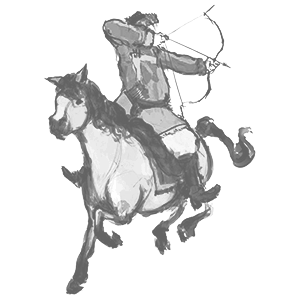There are numerous fallacious ideas and beliefs about the origins (or etymologies) of common English words. The word ‘fuck’ did not originate in Christianized Anglo-Saxon England as an acronym of ‘Fornication Under Consent of King’; nor did it originate as an acronym of ‘For Unlawful Carnal Knowledge,’ either as a sign posted above adulterers in the stocks, or as a criminal charge against members of the British Armed Forces; nor did it originate during the 15th-century Battle of Agincourt as a corruption of ‘pluck yew’ (an idiom falsely attributed to the English for drawing a longbow).
Modern English was not spoken until the 16th century, and words such as ‘fornication’ and ‘consent’ did not exist in any form in English until the influence of Anglo-Norman in the late 12th century. The earliest recorded use of ‘fuck’ in English comes from c. 1475, in the poem ‘Flen flyys,’ where it is spelled ‘fuccant’ (conjugated as if a Latin verb meaning ‘they fuck’). It is of Proto-Germanic origin, and is related to Dutch ‘fokken’ and Norwegian ‘fukka.’
read more »
False Etymologies
Parthian Shot
The Parthian [pahr-thee-uhn] shot was a military tactic made famous by the Parthians (an ancient Iranian empire). Their archers mounted on light horse, while retreating at a full gallop, would turn their bodies back to shoot at the pursuing enemy. The maneuver required superb equestrian skills, since the rider’s hands were occupied by his bow. As the stirrup had not been invented yet, the rider relied solely on pressure from his legs to guide his horse. The tactic was first employed by Eurasian nomads, including the Scythians, Huns, Turks, Magyars, and Mongols, before spreading to armies away from the Eurasian steppe, such as the Sassanid clibanariis and cataphract.
The Parthians famously used it to defeat the Roman general Crassus in the Battle of Carrhae. The phrase ‘parting shot’ has its origins from the Parthian shot. The first recorded usage was by John McCleod, surgeon on board the HMS Alceste contained in: ‘A narrative of a Voyage to the Yellow Sea’ (1818). The two phrases have rather similar phonetic soundings but are actually separately derived at different times. Although the Parthian archers of old have been famous for their shooting, the term ‘parthian shot’ was recorded for the first time in 1832 by Captain Mundy, ADC to Lord Combermere on a hunting trip in India.
Shark Repellent
‘Poison pill’ is sometimes used more broadly to describe other types of takeover defenses that involve the target taking some action.
Although the broad category of takeover defenses (more commonly known as ‘shark repellents‘) includes the traditional shareholder rights plan poison pill. Other anti-takeover protections include: Limitations on the ability to call special meetings or take action by written consent; Supermajority vote requirements to approve mergers; and Supermajority vote requirements to remove directors.
read more »
Wedge Issue
A wedge issue is a social issue, often of a divisive or controversial nature, which splits apart a population or political group. Wedge issues can be advertised or publicly aired in an attempt to weaken the unity of a population; with the goal of enticing polarized individuals to give support to an opponent. The use of wedge issues gives rise to wedge politics. Wedge issues are also known as ‘hot button’ or ‘third rail’ issues.
Political campaigns use wedge issues to exploit tension within a targeted population. A wedge issue may often be a point of internal dissent within an opposing party, which that party attempts to suppress or ignore discussing because it divides ‘the base.’ Typically, wedge issues have a cultural or populist theme, relating to matters such as crime, national security, sexuality (e.g. gay marriage), or race. A party may introduce a wedge issue to an opposing population, while aligning itself with the dissenting faction of the opposition.
read more »





